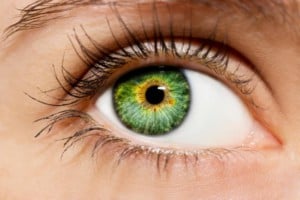 The Austin Eye team is focused on the health and safety of our patients and communities as we face the coronavirus (COVID-19) pandemic. We are particularly attuned to the effects of the coronavirus on ocular health, and wanted to share some important information. We hope this update helps protect you and your family during these unprecedented times.
The Austin Eye team is focused on the health and safety of our patients and communities as we face the coronavirus (COVID-19) pandemic. We are particularly attuned to the effects of the coronavirus on ocular health, and wanted to share some important information. We hope this update helps protect you and your family during these unprecedented times.
Coronavirus and Your Eyes
The medical community’s current understanding is that coronavirus primarily spreads by aerosol transfer (i.e., inhaling virus particles in the air through your mouth or nose), or by touching a surface or object that has the virus on it and then touching your mouth or nose.
Evidence suggests that virus particles can also get into your eyes, either through aerosol transfer or by touching something that has the virus on it and then touching your eyes.
We have also recently learned that in rare cases, coronavirus causes conjunctivitis (a.k.a., “pink eye”). Conjunctivitis is an infection of the conjunctiva, or the membrane covering the white part of the eye and the inside of the eyelids. It causes symptoms such as red, swollen eyes, itching or burning, a foreign body sensation and a sticky eye discharge. Some types of conjunctivitis are extremely contagious.
Our team wants to assure you that just because someone has conjunctivitis does not mean they also have coronavirus (and vice versa). According to the American Academy of Ophthalmology (AAO), health officials believe that between 1 and 3 percent of people who have tested positive for coronavirus have conjunctivitis.
Nevertheless, it is important to take commonsense precautions to reduce your risk of getting sick.
Reduce Your Risk of Coronavirus and Conjunctivitis
The Centers for Disease Control and Prevention recommend the following:
- Regularly wash your hands with soap and water, particularly after being in a public place, using the restroom, sneezing, coughing or blowing your nose. If you cannot wash your hands, use hand sanitizer.
- Refrain from touching your eyes, nose, mouth and other areas of your face.
- Avoid close contact with people who are sick or are suspected of having a respiratory infection.
- Practice social distancing.
The AAO recommends some additional eye-specific precautions:
- If you feel the need to rub or scratch your eyes, use a tissue instead of your fingers.
- Wash your hands before administering any eye drops or eye medicines.
- If you wear contact lenses, practice good contact lens hygiene. Consider switching out contacts for glasses to limit touching your eyes.
- If you are caring for someone who is sick or suspected of having the virus, wear safety goggles to prevent infected respiratory particles from reaching your eyes.
We Are Here for You
Our office is currently closed but we are still available via phone to answer any questions you might have. Please contact us at 512-250-2020.







